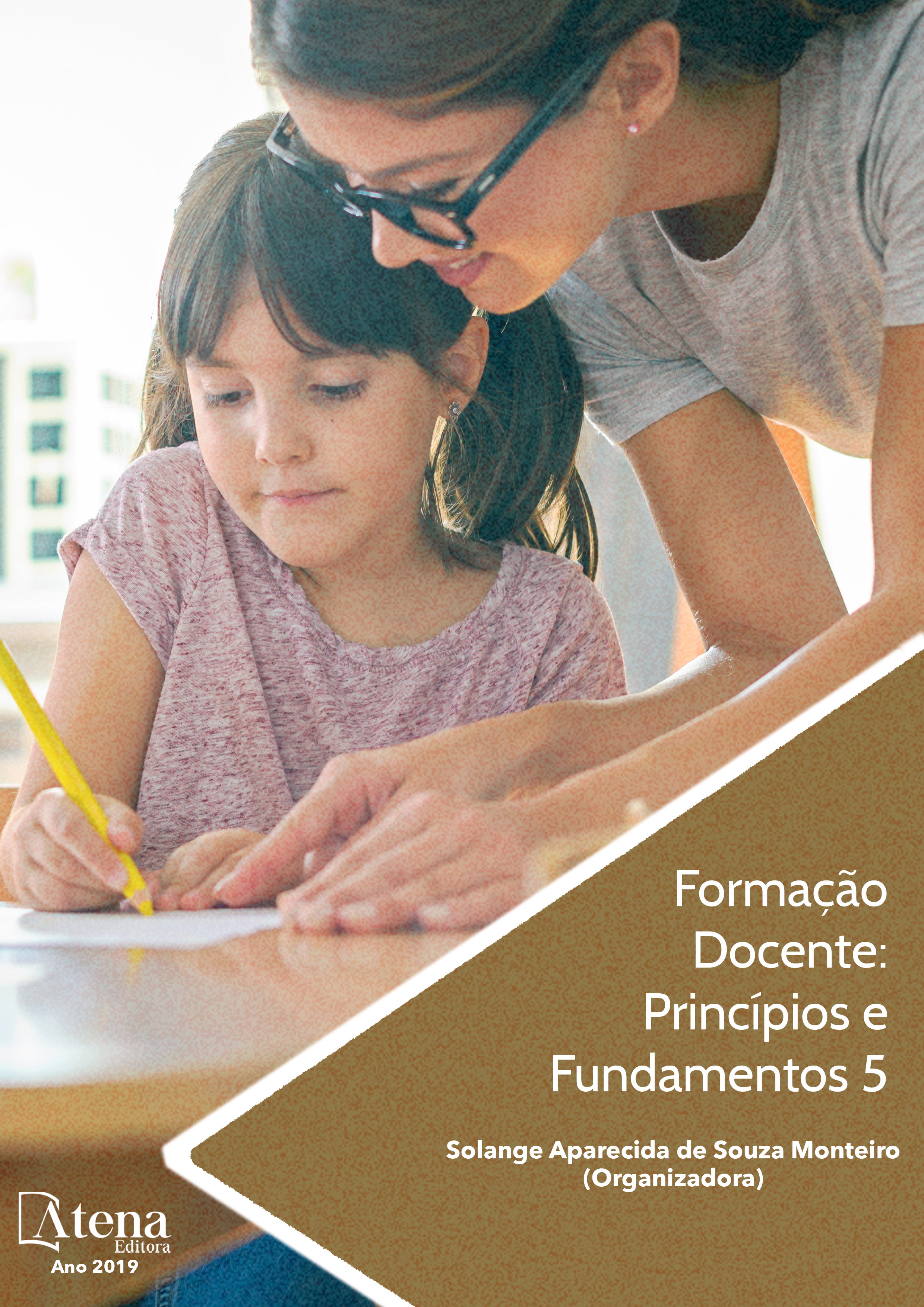
PRODUÇÃO DE MATERIAIS AUTORAIS DIGITAIS EDUCACIONAIS NAS LICENCIATURAS: A TRANSFORMAÇÃO DO CONCEITO DE DOCÊNCIA
O objetivo deste trabalho é analisar
de que forma os licenciandos de Instituição
Pública de Ensino Superior (IPES), participantes
da disciplina Tecnodocência em 2017.2,
transformam sua compreensão sobre docência a
partir do desenvolvimento de Materiais Autorais
Digitais Educacionais (MADEs). Diante de um
cenário de desalinhamento entre os discursos
docente e discente, considera-se a integração
entre Docência e Tecnologias Digitais da
Informação e Comunicação (TDICs) como um
elemento potencializador da ocorrência de
mudanças. A produção de MADEs aparece
como possibilidade de prática, compreendidas
como necessárias para o processo de formação
docente. Caracterizada como Estudo de Caso,
analisou-se a compreensão de licenciandos
sobre o conceito de Docência. Subdividiu-se em
três etapas: planejamento, coleta e análise de
dados. A coleta de dados foi desenvolvida a partir
de três momentos: questionário de sondagem;
roteiro dos MADEs e questionário final.
Procedeu-se com a triangulação metodológica
dos dados, observando-se a centralização
da ação docente; a utilização das TDICs; e a
abordagem construcionista. Verificou-se que a
atividade de produção dos MADEs transformou
pouco a compreensão dos licenciandos sobre a
centralização da ação docente, demonstrando
preocupação em estabelecer uma parceria
com o aluno. A utilização das TDICs ocorreu
de maneira associada à compreensão de
Docência evidenciada pelos licenciandos,
nos momentos em que tal utilização aparecia
como componente obrigatório. A concepção
da transmissão de conhecimentos cedeu lugar
para o reconhecimento da ideia da construção
do conhecimento. Considera-se que não houve
uma modificação significativa no conceito de
Docência, mas existiram elementos que dão
indícios de mobilização para uma transformação
conceitual.
PRODUÇÃO DE MATERIAIS AUTORAIS DIGITAIS EDUCACIONAIS NAS LICENCIATURAS: A TRANSFORMAÇÃO DO CONCEITO DE DOCÊNCIA
-
DOI: 10.22533/at.ed.66919300524
-
Palavras-chave: Docência, Tecnologias Digitais da Informação e Comunicação, Material Autoral Digital Educacional, Licenciatura.
-
Keywords: Teaching, Information and Communication Digital Technologies, Digital Authorial Educational Materials, Undergraduation.
-
Abstract:
The goal of this paper is to analyze
how the Public Institution of Higher Education
(PIHE) undergraduates, participants in the Technoteaching subject in 2017.2, transform
their teaching understanding from the development of Digital Authorial Educational
Materials (DAEM). Facing a scenario of misalignment between teacher and student
discourses, it is considered the integration between Teaching and Information and
Communication Digital Technologies (ICDT) as a potentiating element of the changes´
occurrence. The DAEM production appears as a possibility of practice, understood
as necessary for the teacher training process. Characterized as a Case Study, it was
analyzed the students’ understanding of the teaching concept. It subdivided into three
stages: data planning, data collection and analysis. The data collection was developed
from three moments: survey questionnaire; DAEM script and final questionnaire. It was
proceeded with the data methodological triangulation, observing the centralization of
the teaching action; the use of ICDT; and the constructionist approach. It was verified
that the DAEM production activity little changed the students´ understanding on the
centralization of the teaching action, demonstrating concern in establishing a partnership
with the student. The ICDT use occurred in a manner associated to the teaching
understanding evidenced by the undergraduates, in the moments in which such use
appeared as obligatory component. The conception of the knowledge transmission
gave way to the recognition of the idea of the knowledge construction. It is considered
that there was no significant change in the teaching concept, but there were elements
that give indications of mobilization for a conceptual transformation.
-
Número de páginas: 15
- Luciana de Lima
- Robson Carlos Loureiro
- Gabriela Teles


